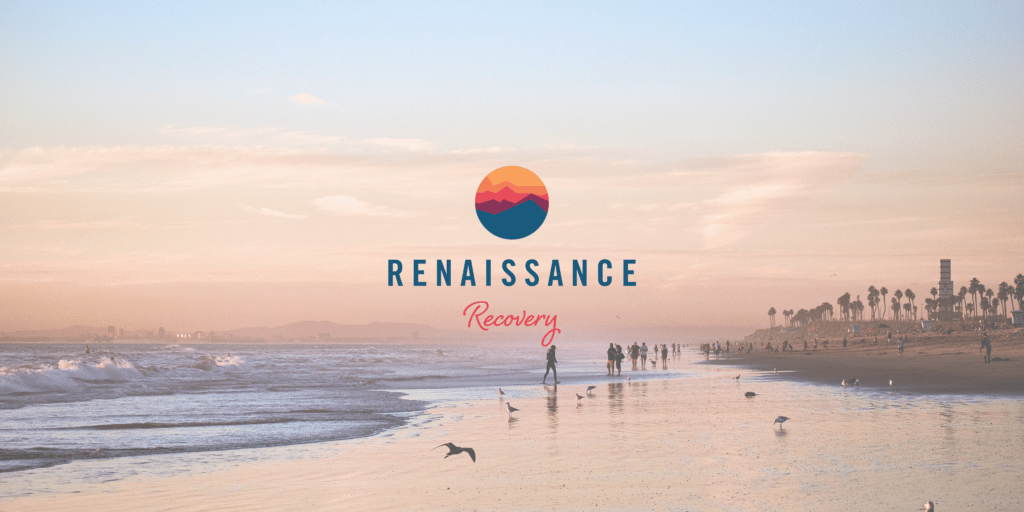If you find yourself confiding in friends that “My boyfriend has a drug problem”, chances are his substance abuse is already straining your relationship. If you are dealing with relationship problems related to drug use or alcohol addiction, seeking the help of a professional treatment program can be the first step toward helping your addicted spouse or partner set themselves up for long-term recovery.
Need help getting addiction treatment?
With 20 million people in the United States suffering from substance use disorder according to the National Survey on Drug Use and Health, you’re certainly not alone.
Before you can meaningfully help a boyfriend addicted to illicit drugs, you’ll need first to restore some order to a chaotic situation. We’ll show you how to go about that today, and we’ll then show you how to get your boyfriend the help he needs from a treatment program like Renaissance Recovery’s California rehab or a support group to help him learn more and overcome his drug abuse problem.
First let’s look at some of the common signs of drug abuse.
“I Think My Boyfriend is On Drugs”
If you are worried that your boyfriend is an addict or dealing with some sort of substance abuse problem, there are a few telltale signs that you should look for that will give you are dealing with an addicted partner.
Signs you boyfriend has a drug problem:
-
Dramatic weight loss or weight gain: Depending on what type of substance addiction your boyfriend is dealing with, they may experience massive fluctuations in their weight. For example, alcohol abuse is generally associated with weight gain whereas meth or cocaine addiction is associated with weight loss.
-
Secretive behavior: Are you noticing that your boyfriend doesn’t spend time with you as much and isn’t transparent with his behavior? This may be a sign that they are hiding their drug use from you.
-
Finding prescription medications, bottles, or other paraphernalia: An addict’s life is chaotic and many of them will leave their drug paraphernalia out and about. If you notice an array of strange materials like pill bottles, needles, foil, empty alcohol bottles, or more it be a sign that your loved one is a substance abuser.
-
Mood swings: Mood swings are a common problem for people dealing with an addiction to drugs or alcohol. Abusing drugs leads to dependence, which, in turn, can lead to withdrawal symptoms. People struggling with withdrawal will often have bouts or anger, sadness, anxiety, and more. If you notice major mood swings, drug use may be involved.
-
Neglecting self care: If you notice that your boyfriend is neglecting to practice self care and general hygiene such as brushing teeth, showering, combing hair, or other things, there is a chance he may be dealing with a drug or alcohol problem.
-
Drinking alcohol more regularly: While alcohol use is not always a sign that something is wrong, if you notice your loved one drinking more alcohol than normal or even abusing alcohol it may be a sign that their they are struggling with alcohol abuse. Often times, alcohol is used alongside other drugs which can increase risk of overall addiction.
These are just some of the common warning signs associated with drug addiction. If you think that you are dealing with an addicted boyfriend or addicted spouse, it may be time to look into treatment options and how you can help them get the recovery they need.

How to Deal With a Drug Addict Boyfriend
If you’ve identified the problem or your significant other has told you they’re an addict, you may be wondering how to proceed. There are three things you can do to immediately stabilize the volatile situation of living with a boyfriend addicted to drugs:
1) Educate yourself about addiction and recovery
By learning as much as possible about addiction, like learning why people get addicted to drugs in the first place, you’ll empower yourself to make better decisions regarding your boyfriend’s drug abuse, and you’ll also be able to help provide him with information when he’s ready to engage with treatment.
If you have no idea where to start, here are some ideas for basic research:
- Find out about the best methods of addiction treatment
- Learn the difference between inpatient and outpatient treatment
- Discover how addiction is underpinned by biological changes – changes to the structure and function of the brain – as well as environmental triggers
- Familiarize yourself with the terminology surrounding addiction and recovery
You should also establish to what extent your boyfriend is struggling with drugs. Often, people grappling with substance use disorder undergo many internal experiences, but there are also many signs and symptoms you can more readily pick up on. These include:
- Developing noticeable issues with memory and cognition
- Appearing intoxicated more and more frequently
- Disrupted sleep patterns and lethargy
- Looking tired or unwell more often
- Being deceitful or lying about substance abuse
- Only attending social events where alcohol is flowing
- Becoming intoxicated before social events
- Getting angry or defensive when questioned about substance abuse
- Stealing money to buy drugs
- Problems developing at home, work, or school
- Neglected personal hygiene and appearance
- Experiencing withdrawal symptoms if unable to use the drug in question
2) Set and maintain healthy boundaries
If you want your relationship to weather the stresses caused by a partner with substance abuse issues, you need to establish and maintain workable boundaries. Boundaries are clear guidelines or expectations regarding behaviors.
Not only will setting appropriate boundaries to protect your wellbeing, but you’ll also be more likely to help your boyfriend stop using drugs and begin the process of recovery. Your relationship should also benefit from this.
Common examples of boundaries include:
- No alcohol or drugs allowed in the home
- Your boyfriend is not allowed in the home when intoxicated
- No drug-using friends allowed in the home
- No personal communication with your boyfriend when he is intoxicated
- Refusal to lend money or possessions
3) Be sure not to enable your boyfriend and end up in a codependent relationship
One of the trickiest things about helping a boyfriend with substance use disorder is to help him without enabling.
Engaging in enabling behaviors is not only counterproductive to helping your boyfriend but can ultimately lead to a codependent relationship forming. Codependency is grounded on a desire to help and demonstrate life, but the help extended often enables the person to continue abusing substances unchecked.
Signs of codependency include:
- Taking responsibility for the person abusing substances
- Making excuses for the person abusing substances
- Putting the needs of the other person before your own
- Difficulty talking openly about your feelings
- Holding onto a damaged relationship in preference to being single
- Difficulty setting and maintaining reasonable boundaries
Even if your relationship doesn’t start out as codependent, this can easily occur when your boyfriend is abusing substances. If you’re struggling with how to deal with a drug addict boyfriend, it may also be time to reach out to a professional counselor for help. Remember that taking care of your own safety boundaries should be your first priority.
So, what can you do to actively help your boyfriend?

How to Help a Drug-Addict Boyfriend
If your boyfriend is an addict, it’s normal to want to help him get sober.
Unfortunately, many of the most effective ways to help a boyfriend with substance use disorder may seem not only counterintuitive but also unkind. This is especially true for codependent relationships. The best thing you can do is help them find an rehabilitation center, like a Huntington Beach rehab that can tell you how to help a partner with addiction, and will provide treatment as well as therapy to treat the root causes of addiction,
Keep the following pointers uppermost in mind:
- Addiction is neither a choice nor a moral failing on your boyfriend’s part. Rather, addiction is a chronic and relapsing disease.
- The relapsing aspect of addiction means you should pack plenty of patience, while also preparing yourself for a journey that may not be linear and may involve relapse – between 40% and 60% of all those who engage with recovery relapse at least once.
- The importance of setting and maintaining appropriate boundaries cannot be overstated.
- Ultimately, your boyfriend needs to commit to recovery. You cannot manage his addiction.
- Encourage your boyfriend to get help. This is likely to include professional addiction treatment.
- Help your boyfriend to find the right substance abuse rehab center specializing in treating that type of drug addiction as well as one that can help with physical and mental health.
- Be supportive without enabling your boyfriend’s substance use.
When dealing with an addict boyfriend, it’s also important that you get outside help for yourself.
Consider a support group like Nar-Anon or Al-Anon. These peer support groups provide help to loved ones of those grappling with substance use disorder or alcohol use disorder. It is also worth noting that many support groups allow loved ones to be present, it may help your boyfriend be stronger if you attend the first few groups with him to help get the process started.

Get Help Getting Your Boyfriend Into Addiction Treatment
If your boyfriend is a drug addict but is ready to stop using and commit to recovery, it’s crucial to find the right treatment center offering a suitable program. Likewise, if you need to help an alcoholic, it is vital to seek treatment as well. The nature of his drug abuse will dictate whether inpatient rehab or a form of outpatient treatment like a PHP (partial hospitalization program) or IOP (intensive outpatient program).
Our team at Renaissance Recovery can help provide your loved one with the proper addiction treatment programs and support groups he needs to overcome the negative consequences of addiction, develop coping strategies and relapse prevention tools, and truly work to conquer their substance abuse problem.
At Renaissance Recovery, our world-class treatment program provides evidence-based treatment for a variety of substance use and mental health disorders. If you’re struggling with how to help a drug addict boyfriend, connecting him with a safe and effective treatment plan at our Orange County drug rehab will provide him with the care he needs.
If costs are a concern, our program accepts many insurance providers which can cover up to 100% of the costs of treatment. Call our friendly recovery team today at (866) 693-3821 to learn more and check your insurance coverage for free.



